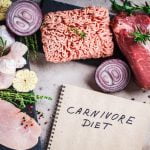
Introduction
A dairy-free breastfeeding diet is a dietary approach where lactating mothers eliminate all dairy products from their meals. This diet is gaining popularity due to its potential benefits for both the mother and the breastfed baby. In this article, we will explore the ins and outs of the dairy-free breastfeeding diet, its advantages, and how to adopt it in a safe and nutritionally balanced manner.
Foods to Avoid on a Dairy-Free Breastfeeding Diet
Dairy Products to Eliminate
The first step in embracing a dairy-free breastfeeding diet is to identify and eliminate all dairy products. This includes milk, cheese, butter, yogurt, and any food items containing these ingredients. Reading food labels diligently becomes crucial to ensure no dairy sneaks into the diet.
Hidden Sources of Dairy
Dairy can often hide in unexpected places, such as processed foods, baked goods, and even some medications. Understanding the various names used for dairy derivatives is essential to avoid accidental consumption.
Benefits of a Dairy-Free Breastfeeding Diet
Improved Digestion for the Baby
Many infants are sensitive to cow’s milk proteins, and their immature digestive systems may have difficulty processing them. By removing dairy from the mother’s diet, breastfeeding babies are less likely to experience gastrointestinal discomfort.
Reduction of Colic Symptoms
Colic is a condition characterized by excessive crying and fussiness in babies. Some studies suggest that a dairy-free diet for breastfeeding mothers may reduce colic symptoms in their infants.
Relief from Allergies and Sensitivities
Breastfeeding a baby with cow’s milk protein allergy or lactose intolerance can be challenging. A dairy-free diet can alleviate allergy symptoms and provide relief to sensitive babies.
Building a Nutritious Dairy-Free Breastfeeding Diet
Alternative Calcium Sources
Calcium is vital for both the mother’s health and the baby’s developing bones. Calcium-rich alternatives like fortified plant-based milk, leafy greens, and almonds can help meet the daily requirements.
Ensuring Sufficient Vitamin D Intake
Vitamin D is essential for calcium absorption and bone health. Lactating mothers should consider supplements and exposure to sunlight to maintain adequate vitamin D levels.
Including Omega-3 Fatty Acids
Omega-3 fatty acids are crucial for the baby’s brain development. Flaxseeds, chia seeds, and walnuts are excellent sources of plant-based omega-3s.
Meal Ideas and Recipes for a Dairy-Free Breastfeeding Diet
Breakfast Options
- Oatmeal with almond milk, berries, and chia seeds
- Vegan smoothie with spinach, banana, and flaxseeds
Lunch and Dinner Recipes
- Quinoa salad with roasted vegetables and tahini dressing
- Stir-fried tofu with broccoli and cashews
Snack Ideas
- Hummus with carrot sticks
- Rice cakes with avocado and nutritional yeast
Navigating Challenges and Pitfalls
Dining Out on a Dairy-Free Diet
Eating out while following a dairy-free diet may seem daunting, but with some research and communication with the restaurant staff, it is possible to find suitable options.
Dealing with Cravings and Social Pressures
Cravings for dairy products are natural, and it’s essential to find satisfying dairy-free alternatives. Additionally, communicating the importance of the diet to friends and family can help manage social pressures.
Frequently Asked Questions (FAQs)
- Is a dairy-free breastfeeding diet safe for my baby’s health?
- Yes, a well-balanced dairy-free diet can be safe and beneficial for most breastfed babies.
- Can I still get enough nutrients on a dairy-free diet while breastfeeding?
- Absolutely! With proper planning, a dairy-free diet can provide all the essential nutrients for both mother and baby.
- How long should I follow a dairy-free diet while breastfeeding?
- The duration of the dairy-free diet depends on the baby’s individual needs and sensitivities. Consult a healthcare professional for personalized advice.
- Are there any alternatives to dairy formula for lactose-intolerant babies?
- Yes, there are specialized lactose-free or hypoallergenic formulas available for babies with specific dietary requirements.
- Can a dairy-free diet help with my baby’s eczema?
- In some cases, a dairy-free diet may lead to improvements in eczema symptoms in breastfed babies with dairy allergies.
Conclusion
A dairy-free breastfeeding diet can be a healthy and beneficial choice for both mother and baby. By eliminating dairy products and embracing nutrient-rich alternatives, breastfeeding mothers can provide their infants with optimal nutrition and potentially alleviate digestive and allergic issues. Remember to consult with a healthcare professional before making any significant dietary changes.






